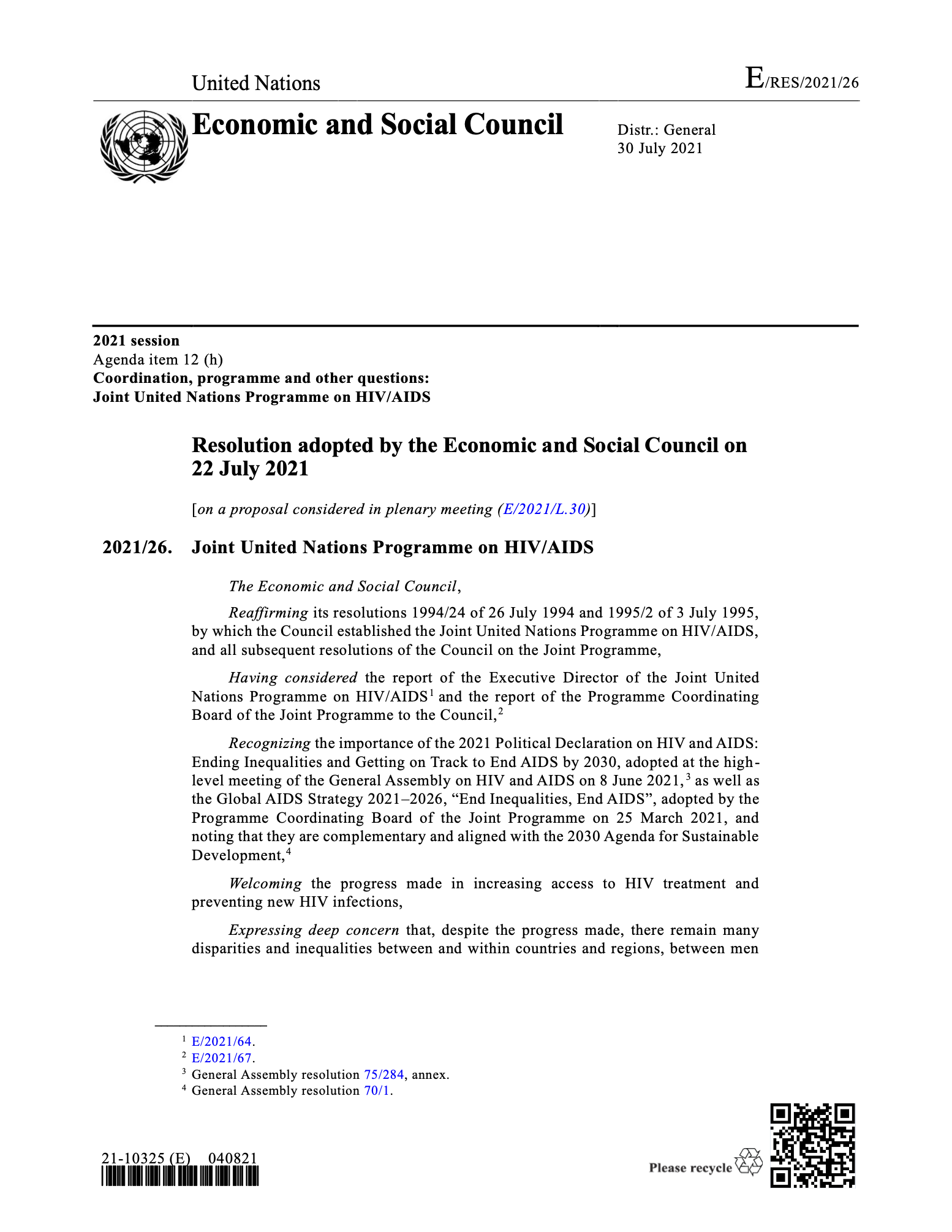2021 UNESC Resolution on UNAIDS
Analysis of precedential value
The United Nations Economic and Social Council (UNESC) serves as the UN’s central forum for advancing sustainable development’s economic, social and environmental dimensions. It is composed of 54 Member States elected regularly by the UN General Assembly.
This resolution was adopted after a proposal from the President of the Council, Munir Akram (Pakistan), on the basis of informal consultations.
Used as precedent
access to health products
“Calls for urgent action and partnership by Member States, the United Nations system, civil society, local communities, the private sector and other stakeholders to scale up evidence-based HIV prevention, testing, treatment, care and retention services, including access to safe, effective, quality and affordable medicines, including generics, to ensure that those services reach the people who need them the most, including adolescent girls and young women as well as key populations that epidemiological evidence shows to be globally at higher risk of HIV infection, and children living with HIV, who have poorer HIV treatment coverage than adults and comprise a higher relative proportion of AIDS-related deaths.” (paragraph 4)
“Urges Member States to urgently remove, where feasible, obstacles that limit the capacity of low- and middle-income countries to provide affordable and effective HIV prevention and treatment products, diagnostics, medicines and commodities and other pharmaceutical products.” (paragraph 5)
gender equality, human rights
“Calls for reinvigorated efforts to protect human rights and promote gender equality in the context of HIV and to address social risk factors, including gender-based violence and domestic violence, including intimate partner violence, which can be understood differently in different contexts, as well as social and economic determinants of health, with the aim of reducing health inequities within and among countries.” (paragraph 6)
